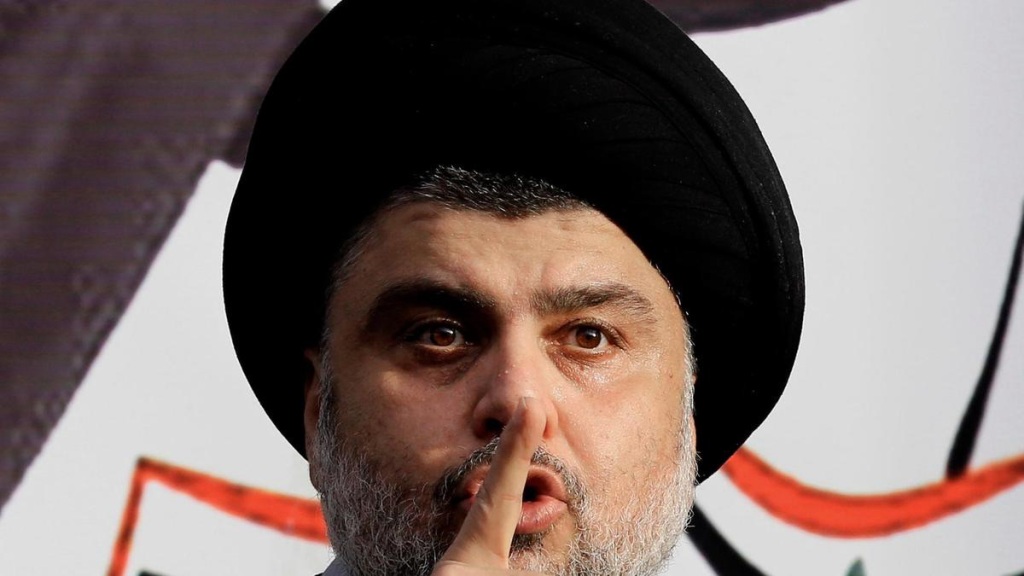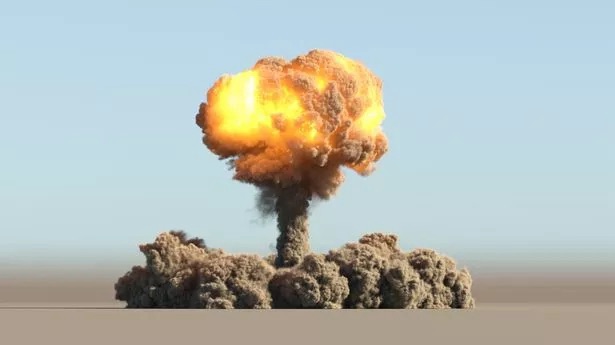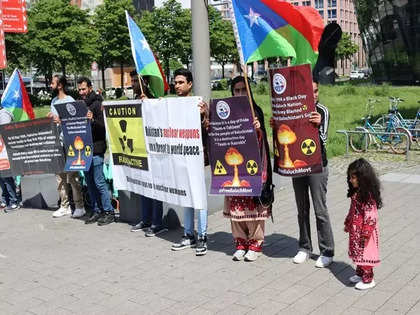
Supporters of Iraqi cleric Sadr storm Baghdad’s Green Zone again
July 30, 2022 at 4:15 a.m.
By Maher Nazih and and Amina Ismail
BAGHDAD (Reuters) -Thousands of supporters of Shi’ite populist cleric Moqtada al-Sadr stormed Baghdad’s fortified government zone and broke into parliament on Saturday for the second time in a week, leaving at least 125 people injured and escalating a political stand-off.
Protesters rallied by Sadr and his Sadrist Movement tore down concrete barriers and entered the Green Zone, which houses government departments and foreign missions, before breaking into parliament.
“We are calling for a government free from corruption … and those are the demands of the people,” one protester, Abu Foad, said among crowds of protesters carrying placards with Sadr’s photograph and national flags.
The scenes followed similar protests on Wednesday, although this time at least 125 people – including demonstrators and police – were wounded, according to a health ministry statement.
Sadr’s supporters threw stones and police fired teargas and stun grenades.
“We Iraqis have endured injustices because of those corrupt people,” said another protester Alaa Hussain, 49.
“I have two unemployed children who graduated from university and I am unemployed. There are no jobs and that is all because of corruption.”
Sadr’s party came first in an October election but he withdrew his 74 lawmakers from parliament after failing to form a government which excluded his Shi’ite rivals, most of whom who are backed by Iran and have heavily-armed paramilitary wings.
U.N. FRETS
His withdrawal ceded dozens of seats to the Coalition Framework, an alliance of Shi’ite parties backed by Iran.
Sadr has since made good on threats to stir up popular unrest if parliament tries to approve a government he does not like, saying it must be free of foreign influence.
Sadr’s supporters chanted against his rivals who are now trying to form a government. Many protested in front of the country’s Supreme Court, which Sadr has accused of meddling to prevent him forming a government.
In response, the Coalition Framework called on Iraqis to protest peacefully “in defence of the state, its legitimacy and its institutions,” a statement read later on Saturday, raising fears of clashes.
The United Nations called for a de-escalation. “Voices of reason and wisdom are critical to prevent further violence,” said its mission in Iraq.
Prime Minister Mustafa al-Kadhimi also urged political groups not to escalate unrest. “Let this not devolve into clashes, and keep Iraq secure,” he said in a televised address.
Speaker of Parliament Mohammed al-Halbousi suspended all parliamentary session until further notice, the state news agency reported.
Iraq has been without a president and prime minister for about 10 months because of the deadlock.
Sadr, whom opponents also accuse of corruption, maintains large state power himself because his movement remains involved in running the country. His loyalists have long run some of the allegedly most corrupt and dysfunctional government departments.
Iraqis linked neither to Sadr nor to his opponents say they are caught in the middle of the political gridlock.
While Baghdad earns record income from its vast oil wealth, the country has no budget, frequent power and water cuts, poor education and healthcare, and insufficient job opportunities for the young.
(Reporting by Maher Nazir and Reuters TV in Baghdad and Amina Ismail in Erbil;Additional reporting by John Davison, Thaier Al-Sudani in Baghdad and Yasmine Hussein in Cairo;Writing by John Davison and Amina Ismail;Editing by Helen Popper, Andrew Cawthorne and Christina Fincher)




